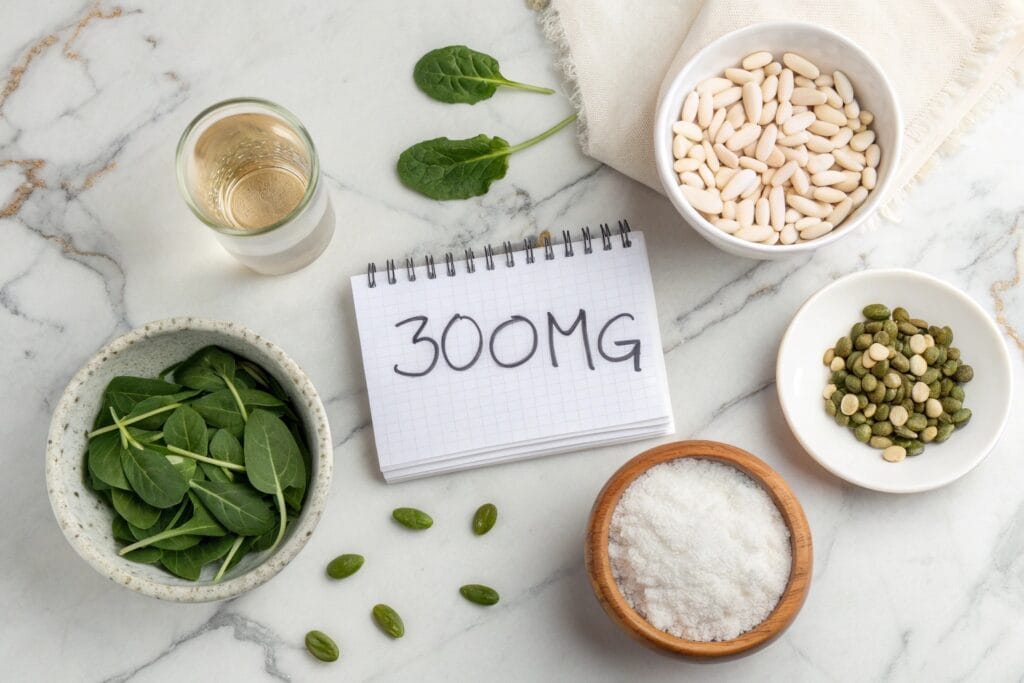Struggling with Keto Constipation? 9 Proven Ways to Relieve It
Started Keto and Now Things… Aren’t Moving? You’re Not Alone!
If you’ve recently embarked on your keto journey only to find yourself dealing with a frustrating side effect—constipation—know that you’re in good company. This common digestive hurdle affects many keto beginners and even some veterans. According to a 2020 systematic review published in Frontiers in Nutrition, gastrointestinal symptoms, including constipation, are among the most frequently reported side effects during the initial adaptation to ketogenic diets.
Table of Contents
Why Does Keto Sometimes Cause Constipation?
The constipation many experience on keto isn’t just bad luck—it’s usually a direct result of the significant dietary shift your body undergoes when switching fuel sources from carbs to fat. Research published in the Journal of Clinical Gastroenterology indicates that dramatic changes in macronutrient composition can temporarily disrupt normal bowel function as your body adapts. Additionally, the rapid fluid and electrolyte shifts that occur during ketosis initiation play a crucial role in this digestive slowdown.
Good News: It’s Usually Fixable! What This Guide Covers:
The good news? Keto constipation is typically temporary and addressable with the right approach. In this comprehensive guide, we’ll cover:
- The main physiological reasons why constipation happens on keto
- Simple, actionable remedies you can implement today
- Effective strategies for preventing constipation long-term
- Warning signs that indicate when you should seek medical attention
Disclaimer: This content is informational only and not a substitute for personalized medical advice. If you experience persistent or severe constipation, please consult with a healthcare professional.

Unpacking the Causes: Why Your Digestion Slows Down
1. Dehydration: The Water Woosh Takes Fluid With It
When you first enter ketosis, your body depletes its glycogen stores—and each gram of glycogen holds approximately 3-4 grams of water. Research from the European Journal of Clinical Nutrition demonstrates that this rapid water loss, often called the “whoosh effect,” can lead to dehydration if water intake isn’t consciously increased.
This matters for your digestive system because water is essential for softening stool and facilitating smooth bowel movements. The colon’s primary function includes water reabsorption; when you’re dehydrated, it extracts too much water from waste material, resulting in hard, difficult-to-pass stools.
If you’re experiencing other signs of dehydration alongside constipation, check out our guide on sugar cravings during ketosis, as dehydration can sometimes trigger cravings.
2. Electrolyte Imbalance: Sodium & Magnesium are Key!
On a ketogenic diet, reduced insulin levels cause the kidneys to excrete more sodium, potassium, and magnesium—critical electrolytes that influence digestive function. A 2018 study in Nutrients found that electrolyte imbalances are common during ketogenic diet adaptation.
Magnesium’s Role: Magnesium is particularly crucial for constipation relief, as it acts as a natural muscle relaxant, including for the intestinal muscles responsible for peristalsis (the wave-like contractions that move food through your digestive tract). Clinical research published in the European Journal of Clinical Nutrition has demonstrated that magnesium supplementation can effectively relieve constipation by drawing water into the intestines and promoting muscle relaxation.
For an in-depth understanding of how magnesium impacts your keto journey, read our detailed article on keto magnesium deficiency signs and solutions.
Sodium’s Role: Adequate sodium helps maintain proper fluid balance throughout the body, including in the digestive tract. Without enough sodium, your body may struggle to maintain proper hydration levels in the intestines, further contributing to constipation.
Many of these electrolyte imbalances are also associated with the infamous keto flu, which often accompanies the early stages of keto adaptation.
3. Drastic Reduction in Fiber (It’s Nuanced!)
While many conventional dietary approaches emphasize fiber for constipation relief, the keto perspective is more nuanced. Yes, the elimination of high-fiber carbohydrate sources like whole grains, legumes, and certain fruits can impact bowel regularity for some individuals. However, research published in World Journal of Gastroenterology suggests that simply adding fiber without addressing hydration and electrolyte status may actually worsen constipation for some people.
In the context of keto, dehydration and electrolyte imbalances often play a more significant role than fiber deficit. This explains why some people actually experience improved digestion on lower-fiber keto and carnivore diet approaches.

4. Not Enough Fat: Lubrication Matters!
A common mistake among keto beginners is inadequate fat consumption. Fat serves as a natural lubricant for the digestive system. A study in Nutrients found that sufficient dietary fat intake can stimulate bile production, which aids in the digestive process and helps soften stool.
When transitioning to keto, many people are still mentally programmed to avoid fat, resulting in meals that are too protein-heavy and lacking the lubricating effects of healthy fats that help things move along smoothly. This is often one reason why people experience not losing weight on keto despite following the diet—inadequate fat can stall both weight loss and digestive function.
5. Gut Microbiome Adjusting: Your Gut Bacteria Need Time
The dramatic shift in macronutrients on a ketogenic diet significantly impacts your gut microbiome—the trillions of bacteria that aid digestion. Research from the British Journal of Nutrition shows that dietary changes can alter gut bacterial composition within just 24 hours, but achieving a new stable microbiome can take weeks.
During this adaptation period, digestive discomfort including constipation is common as your gut flora adjusts to processing higher amounts of fat and protein while dealing with fewer carbohydrates. This adaptation is similar to what happens during autophagy, where your body undergoes cellular cleanup and renewal processes.
6. Too Much Dairy (For Some Individuals):
While dairy products are generally keto-friendly, they can be constipating for sensitive individuals. A clinical review in Gastroenterology & Hepatology notes that lactose intolerance and casein sensitivity can manifest as constipation in susceptible people. If you’ve dramatically increased your cheese, heavy cream, or butter consumption since starting keto, this might be contributing to your digestive slowdown.
If you’re following a carnivore diet that includes dairy, you might want to temporarily reduce these foods to see if your constipation improves.
Need Relief? Try These Keto Constipation Remedies
1. Drink More Water! (The Simplest First Step)
Hydration is your first line of defense against keto constipation. According to hydration research in the Journal of Human Nutrition and Dietetics, even mild dehydration can significantly impact digestive function.
Action steps:
- Aim for at least 3-4 liters (12-16 cups) of water daily when on keto
- Track your water intake with a marked bottle or app
- Add a pinch of natural sea salt to water to improve absorption
- Consider adding fresh lemon or lime for flavor and additional benefits
2. Increase Salt (Sodium) Intake
On keto, your sodium requirements increase significantly. A study in Advances in Nutrition indicates that low-carb dieters may need an additional 3-5 grams of sodium daily.
Action steps:
- Liberally salt your food with pink Himalayan or sea salt
- Drink 1-2 cups of bone broth or bouillon daily (look for sugar-free options)
- Consider a morning “sole water” (water with dissolved pink salt)
- Use electrolyte supplements formulated for keto dieters
3. Supplement with Magnesium CITRATE
Magnesium citrate is particularly effective for constipation relief because it has an osmotic effect, drawing water into the intestines. A clinical trial published in European Journal of Clinical Nutrition demonstrated significant improvement in constipation symptoms with magnesium supplementation.
Action steps:
- Start with 200-300mg of magnesium citrate before bedtime
- Gradually increase if needed (up to 400-500mg), stopping if stools become too loose
- Take with plenty of water to maximize effectiveness
- Consider a magnesium supplement that combines multiple forms (citrate, glycinate, malate) for broader benefits
Our detailed guide on keto magnesium deficiency covers the best types of magnesium supplements for different keto-related issues.
4. Boost Healthy Fat Intake
Increasing your fat consumption can stimulate bile production and lubricate the digestive tract. A review in Clinical Nutrition highlights the importance of dietary fat for proper digestive function.
Action steps:
- Add 1-2 tablespoons of olive oil to salads or cooked vegetables
- Cook with grass-fed butter, tallow, or coconut oil
- Consider adding MCT oil to keto coffee (start with 1 teaspoon and gradually increase)
- Include fatty cuts of meat and fish in your diet
- Enjoy whole-food fat sources like avocados and olives
For delicious high-fat meal ideas, check out our keto carnivore recipes that provide ample healthy fats.
5. Gentle Movement & Exercise
Physical activity stimulates peristalsis—the involuntary muscle contractions that move food through your digestive system. Research in the Scandinavian Journal of Gastroenterology confirms that even mild exercise can significantly improve constipation symptoms.

Action steps:
- Take a 15-30 minute walk after meals
- Practice gentle yoga poses that focus on twisting the torso
- Try abdominal massage in a clockwise direction
- Incorporate squatting positions into your day (squatting helps align the colon for easier evacuation)
If you’re concerned about weight training on keto, know that gentle exercise will help both your digestive system and your overall fitness goals.
6. Drink Coffee (If Tolerated)
Coffee stimulates colonic motor activity for many people. A study in Gut found that coffee can stimulate digestion to a degree similar to consuming a meal.
Action steps:
- Try a cup of hot black coffee in the morning
- Consider bulletproof coffee with MCT oil or butter for added lubricating effects
- If sensitive to caffeine, try a small amount first or opt for decaf, which still contains some of the compounds that stimulate digestion
For carnivore dieters, our guide on drinking coffee on the carnivore diet provides additional insights.
7. Consider Keto-Friendly Fiber (Use Strategically & Hydrate!)
While fiber isn’t always the answer on keto, strategic use of the right types can help some individuals. Research in the World Journal of Gastroenterology indicates that soluble fiber can be beneficial for constipation when paired with adequate hydration.
Action steps:
- Try 1-2 tablespoons of psyllium husk powder mixed in 12-16 oz of water
- Incorporate chia seeds (1-2 tablespoons soaked in water for 15 minutes)
- Add ground flaxseeds to keto recipes (start with 1 tablespoon)
- Include non-starchy vegetables like spinach, kale, and zucchini
- IMPORTANT: Always increase water intake when adding fiber
Before adding chia seeds, check if they align with your specific diet approach—some people wonder are chia seeds high in oxalates, which is worth considering if you’re sensitive to oxalates.
8. Evaluate Dairy Intake
Research published in Gastroenterology & Hepatology suggests that dairy products can cause constipation in sensitive individuals due to the proteins found in cow’s milk.
Action steps:
- Track your symptoms in relation to dairy consumption
- Try eliminating cheese, heavy cream, and other dairy products for 1-2 weeks
- Consider replacing with coconut cream or other non-dairy alternatives
- If symptoms improve, reintroduce dairy slowly to determine your tolerance threshold
9. Gentle Stomach Massage
Abdominal massage can physically stimulate the digestive tract and encourage bowel movements. A randomized controlled trial in International Journal of Nursing Studies found that regular abdominal massage significantly improved constipation symptoms.
Action steps:
- Using your fingertips, apply gentle pressure in a clockwise direction around your navel
- Start from the lower right side of your abdomen and move up, across, and down (following the path of your colon)
- Practice for 5-10 minutes, especially after waking or before attempting a bowel movement
Staying Ahead: How to Prevent Keto Constipation
Consistent Hydration: Make it a non-negotiable habit
Prevention starts with adequate hydration every single day. A study in European Journal of Clinical Nutrition found that maintaining optimal hydration status is a key factor in preventing constipation.
Set a specific daily water target (minimum 3 liters for most keto dieters) and track your intake. Consider setting reminders on your phone or using a marked water bottle to ensure you’re getting enough fluids throughout the day.
Maintain Electrolyte Balance
Research published in Current Gastroenterology Reports emphasizes the importance of electrolyte balance for proper gastrointestinal function. On keto, your daily targets should include:
- 3,000-5,000mg sodium
- 400-500mg magnesium
- 1,000-3,500mg potassium
Consider a comprehensive electrolyte supplement formulated for keto dieters, or create your own “ketoade” by adding salt, potassium (from “lite salt”), and magnesium to water with a sugar-free flavoring.
Ensure Sufficient Fat Intake Daily
Adequate dietary fat is essential for digestive health on a ketogenic diet. Research in The Journal of Nutrition indicates that fat intake stimulates bile production, which aids digestion and prevents constipation.
Aim to have fat comprise 70-80% of your total calories. Include various fat sources like avocados, olive oil, coconut oil, butter, fatty cuts of meat, and oily fish. Our keto carnivore taco skillet and keto carnivore pork chops recipes are excellent high-fat meal options.
Include Keto-Friendly Veggies/Fiber Sources (If tolerated)
While not essential for everyone, non-starchy vegetables can provide prebiotics and fiber that support digestive health. Research in The Journal of Nutrition shows that certain plant foods can positively influence gut microbiota.
Focus on low-carb vegetables like leafy greens, zucchini, cucumber, and bell peppers. Track your total carbs to ensure you’re staying within your keto targets.
Regular Physical Activity
A meta-analysis published in Scandinavian Journal of Gastroenterology concluded that regular exercise significantly reduces the risk of constipation.
Aim for at least 30 minutes of movement daily, even if it’s just walking. Add specific digestive-supporting movements like yoga twists and squats to your routine.
Manage Stress
The gut-brain connection is powerful, and stress can significantly impact digestive function. Research in World Journal of Gastroenterology demonstrates that chronic stress disrupts normal gastrointestinal function.
Incorporate stress-reduction practices like meditation, deep breathing, adequate sleep, and spending time in nature. These activities support your parasympathetic nervous system, which governs proper digestive function. For additional guidance, check out our stress management PDF.
Consider Probiotics/Fermented Foods
Probiotic supplements and fermented foods can help restore and maintain healthy gut bacteria. A systematic review in The American Journal of Clinical Nutrition found that certain probiotic strains effectively relieve constipation.
Keto-friendly probiotic sources include:
- Sugar-free sauerkraut and kimchi
- Unsweetened coconut yogurt
- Specialized probiotic supplements (look for multi-strain formulas with at least 10 billion CFU)
For carnivore dieters, you may want to explore specific carnivore diet supplements that can support digestive health.
The Adaptation Phase: Will This Last Forever?
The good news is that keto constipation is typically temporary. According to a longitudinal study in Nutrients, most gastrointestinal symptoms associated with ketogenic diets improve significantly after the initial adaptation period.
For most people, constipation issues resolve within the first few days to 2 weeks as the body adjusts to fat metabolism and if proper hydration and electrolyte protocols are followed. Research published in Frontiers in Nutrition indicates that the full metabolic adaptation to nutritional ketosis takes approximately 3-4 weeks, with digestive symptoms typically improving before that point.
If constipation persists beyond 2-3 weeks despite implementing the remedies discussed above, it may be worth investigating other potential causes, such as specific food sensitivities or underlying health conditions.
Red Flags: When Constipation Needs Medical Attention
While keto constipation is usually benign and temporary, certain symptoms warrant immediate medical attention. According to clinical guidelines published in American Family Physician, the following symptoms should prompt a visit to your healthcare provider:
- Severe, persistent abdominal pain
- No bowel movement for more than 5-7 days despite trying multiple remedies
- Blood in the stool
- Vomiting or inability to pass gas
- Unexplained weight loss accompanying constipation
- Sudden, dramatic change in bowel habits from your normal pattern (even pre-keto)
- Persistent constipation despite implementing multiple remedies
Remember that while dietary changes can cause temporary digestive adjustments, they shouldn’t result in severe or prolonged discomfort.
Frequently Asked Questions About Keto Constipation
How long does constipation typically last on keto?
Most people experience constipation relief within 1-2 weeks as their bodies adapt to ketosis and if they implement proper hydration and electrolyte protocols. However, this varies based on individual factors including prior dietary habits, metabolism, and lifestyle.
Is constipation a sign that keto isn’t working for me?
No, constipation is a common adaptation symptom and doesn’t indicate that keto is ineffective for your body. In fact, it often signals that your body is transitioning from carb to fat metabolism. Implementing the strategies in this article typically resolves the issue.
Can I take laxatives on keto?
While occasional use of gentle, osmotic laxatives (like magnesium citrate) is generally acceptable, dependency on stimulant laxatives should be avoided. Focus on addressing the root causes of constipation with hydration, electrolytes, and dietary adjustments first.
Will adding fiber help my keto constipation?
The relationship between fiber and constipation on keto is complex. For some, strategic fiber addition helps, while others find relief by reducing fiber. Always increase water intake when adding fiber, and monitor your individual response.
Can MCT oil help with constipation?
Yes, MCT oil can have a mild laxative effect for many people by stimulating bile production and lubricating the digestive tract. Start with small amounts (1 teaspoon) and gradually increase to avoid digestive discomfort.
Should I stop keto if I’m constipated?
Constipation alone isn’t typically a reason to abandon keto. Instead, focus on implementing the strategies outlined in this article. If constipation persists despite these interventions or is accompanied by concerning symptoms, consult your healthcare provider.
Is keto constipation different from regular constipation?
Yes, the mechanisms behind keto constipation often differ from typical constipation. While conventional constipation might stem primarily from insufficient fiber, keto constipation more commonly relates to dehydration, electrolyte imbalances, and the body’s adaptation to fat metabolism.
Smooth Sailing Ahead: Managing Digestion on Keto
Constipation may be a common bump in the keto road, but it’s one that can usually be navigated successfully with the right approach. As we’ve seen, the keys to maintaining healthy digestion on a ketogenic diet center around:
- Hydration: Making adequate water intake non-negotiable
- Electrolytes: Ensuring sufficient sodium, magnesium, and potassium
- Fat Intake: Consuming enough dietary fat to lubricate the digestive system
- Body Awareness: Listening to your individual needs and adjusting accordingly
Remember that your digestive response to keto is highly individual. Some people thrive with more fiber, while others do better with less. Some need strict attention to electrolytes, while others adapt more easily. The key is to experiment mindfully and track your results.
By implementing the strategies outlined in this guide, most people can overcome constipation and enjoy all the advantages of ketosis without the digestive discomfort.
What keto constipation remedies worked best for you? Share your experience in the comments below!
Learn Why Magnesium is Crucial on Keto
New to Keto? Avoid side effects with our Keto Flu Guide
Enjoy, Review – We Value Your Opinion!
There are no reviews yet. Be the first one to write one.

